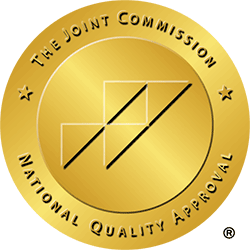
Supporting a loved one or friend in recovery from addiction is one of the most impactful roles you can play in their journey to sobriety. Being an ally means offering emotional support, encouragement, and understanding as they navigate the challenges of recovery. At BriteLife Recovery, we believe that having a strong support system is crucial to long-term success in recovery. Here’s how you can be an effective and compassionate ally to someone who is working toward sobriety.
1. Educate Yourself About Addiction and Recovery
The first step to being a good ally is to educate yourself about addiction and the recovery process. Addiction is a complex disease that affects both the brain and behavior, and it’s important to understand that recovery is a long-term process that involves more than just stopping the use of substances. Learn about the stages of addiction, withdrawal, relapse prevention, and the challenges your loved one may face along the way.
By educating yourself, you can better understand what your friend or family member is going through, and you’ll be better equipped to provide the support they need.
2. Offer Non-Judgmental Support
One of the most important things you can offer someone in recovery is non-judgmental support. Addiction often comes with feelings of guilt, shame, and embarrassment, so it’s important to create a safe space where your loved one feels comfortable being honest about their struggles.
Avoid making judgmental comments or bringing up their past mistakes. Instead, focus on their progress and the positive changes they’re making. Encouraging them with words like, “I’m proud of you,” or “You’re doing great” can make a world of difference in boosting their confidence and motivation.
3. Be Patient and Understanding
Recovery is a process that doesn’t happen overnight, and there may be setbacks along the way. It’s important to be patient with your loved one as they navigate their recovery journey. Understand that there may be good days and bad days, and that relapse is sometimes a part of the recovery process.
If a relapse occurs, resist the urge to react with anger or disappointment. Instead, offer support and encourage them to seek help. Remember that recovery is a lifelong journey, and your understanding and patience will help them stay committed to getting back on track.
4. Encourage Healthy Habits
Being an ally also means encouraging healthy habits and activities that support recovery. Suggest participating in sober activities together, such as exercising, attending support group meetings, or engaging in hobbies that promote relaxation and emotional well-being.
Encourage your loved one to focus on their physical and mental health by eating well, getting enough sleep, and managing stress in healthy ways. A balanced lifestyle is key to maintaining sobriety, and your support in promoting these habits can make a big difference.
5. Respect Their Boundaries
While it’s important to offer support, it’s equally important to respect your loved one’s boundaries. Recovery is a personal journey, and your loved one may not always want to talk about their struggles. Give them the space they need while reminding them that you’re available if they need to talk or ask for help.
Respecting their privacy and boundaries shows that you trust them to manage their recovery in their own way, which is an essential part of fostering a healthy and supportive relationship.

Being an ally to someone in recovery means offering support, understanding, and patience as they work toward sobriety. By educating yourself, providing non-judgmental support, encouraging healthy habits, and respecting their boundaries, you can play a crucial role in helping your loved one succeed in their recovery journey. At BriteLife Recovery, we know that having a strong support system can make all the difference, and we are here to provide the guidance and care your loved one needs.
If you or someone you know is in need of support during recovery, contact BriteLife Recovery today to learn more about our comprehensive addiction treatment programs.
SPEAK WITH AN ADDICTION SPECIALIST


